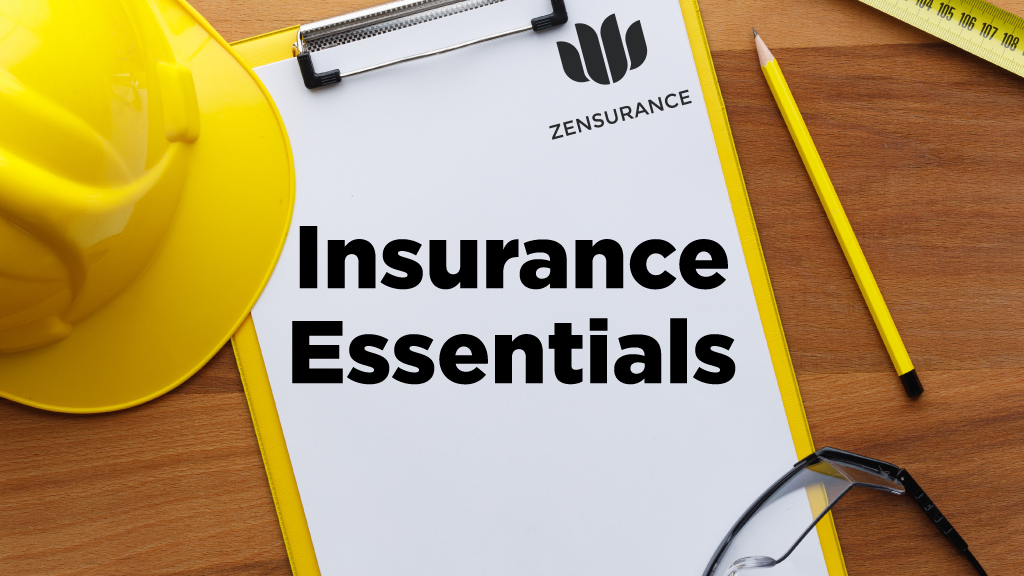Working in the construction industry comes with significant risks. Here’s how to protect yourself and your business from the fallout of accidents, unexpected events and third-party lawsuits.
Construction contractors and small business owners in the industry are essential to building and maintaining Canadian infrastructure, homes and workplaces. They do the heavy lifting necessary to ensure our country’s continuing development and economic health.
It’s a tremendous responsibility and one that comes with significant risks to the men and women dedicated to keeping Canada strong. That begs the question: Are you fully prepared for when things go wrong?
It’s wise for any contractor or small business owner in the construction industry to protect themselves with commercial general liability (CGL) insurance because it can save you from financial ruin if you are sued or suffer a loss.
Understanding Commercial General Liability insurance
A CGL insurance policy protects your business from financial loss should you be liable for third-party property damage, bodily injury or advertising-related injury caused by your services, business operations, or your employees. In addition, it covers non-professional negligent acts.
Think of it like this. CGL insurance covers your legal defence costs if someone sues you for bodily injury such as a trip-and-fall accident on your commercial property or at a jobsite, property damage, if your crew’s work damages a property adjacent to a construction site, or advertising injury, a claim of libel, slander, defamation or violation of privacy resulting from your business’s advertising activities. In addition, it includes coverage for your products and completed operations at that jobsite.
Even if a lawsuit is frivolous and found to be without merit in court, you’re still on the hook to pay for your legal defence expenses. Moreover, should the court rule against you, the cost associated with any outcome could drive you into bankruptcy.
How much does Commercial General Liability insurance cost?
As a broker at Zensurance, my job is to help small business owners and independent construction contractors get the insurance package that suits their needs at the best rates within the shortest amount of time. Being a digital business insurance brokerage, Zensurance can get its clients insured quicker than traditional brokerages whose processes and requirements are often archaic.
We do this by leveraging our partner network of more than 50 Canadian insurance companies and we often can find our clients the policies they need at 35 per cent less than what our competitors do. However, it’s important to understand that a broker does not determine the cost of an annual premium for any small business. The insurance companies do that and they base their decisions on various factors including your years of experience, where you are located, how many employees you have, your annual and projected revenue and the services you provide.
In other words, different insurers offer different prices for the type of coverage your business requires. Of course, every kind of business faces risks, but some enterprises present higher levels of risk than others. That means the more risk your business has, the more expensive your policy may be since a higher amount of risk suggests a greater likelihood you will need to file a claim.
You know better than anyone that the construction industry comes with a significant amount of risk. With that said, most CGL policies for a small business cost between $500 and $700 per year, but it varies according to the type of coverages you need and the limits of those coverages.
Jon Hogg is a licensed broker and team lead, digital solutions, contractors at Zensurance, Canada’s leading digital business insurance brokerage. Get a free quote for your insurance needs by visiting Zensurance.com/DCN.










I am one of those “archaic” insurance brokers the author refers to and an insurance broker that possesses about 30+ archaic years of construction risk and insurance knowledge. I guess knowledge has no value in the author’s digital mindset. As contractors do you really want your insurance coverage assembled by tick boxes and robots, or do you depend on skilled (albeit archaic) insurance professionals for advice and coverage placement? People that have been around the gatepost a few times over the years and have handled the insurance needs of numerous contactors, projects and most important of all, claims.
This article is very lean on detail about insurance coverage and how it works and ends up more just an advertisement.
I suggest that the readers refer to the CCDC 21 – Guide to Construction Insurance as it provides in-depth information in simple terms as to what is and is not covered by Commercial General Liability Insurance than this article.
There is also a really useful section of the guide that provides suggested criteria to use when selecting your insurance professional.
Wisely, CCDC adds no inference about 35% savings.
In fact, you will get so much more value out of the CCDC 21 Guide to Construction Insurance as it addresses almost every facet you ever needed to know about construction insurance.
Keep in mind that standard Insurance Conditions have changed. It would be prudent to pick up a copy of the new CCDC 2 and CCDC 41 for reference.
Thanks for reading,
An Archaic Insurance Professional
Member of the CCDC Insurance Documents Subcommittee.